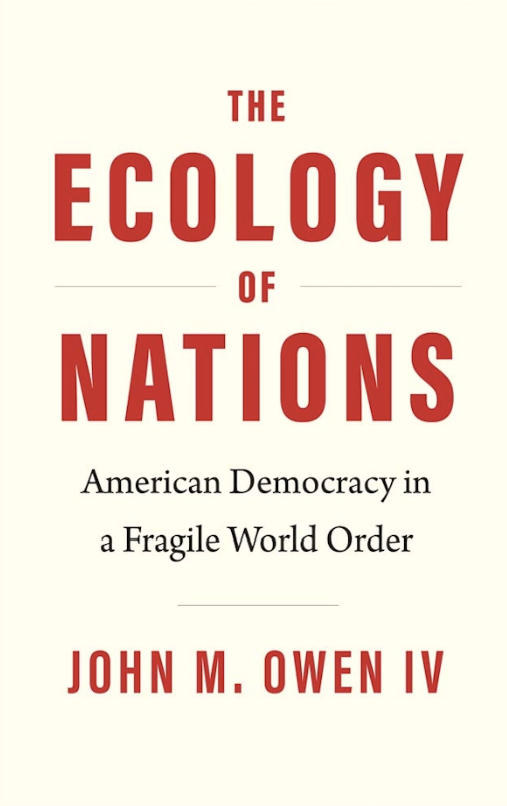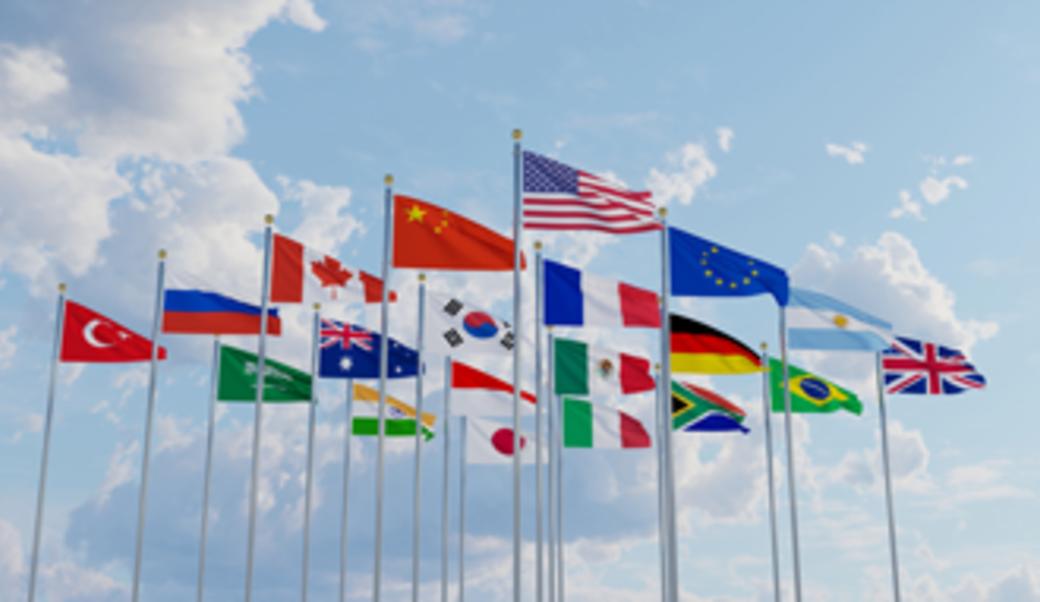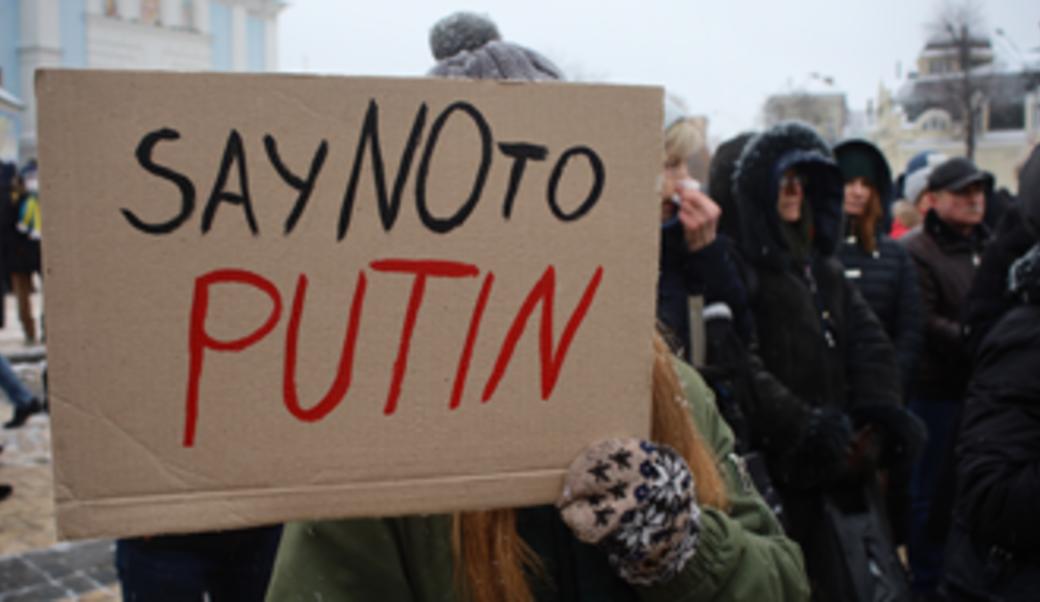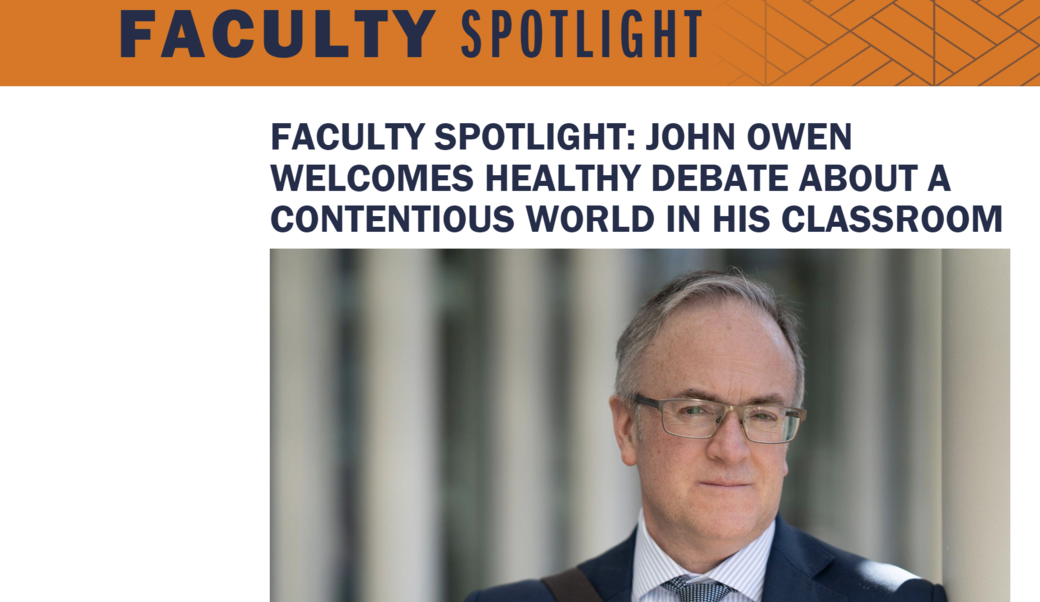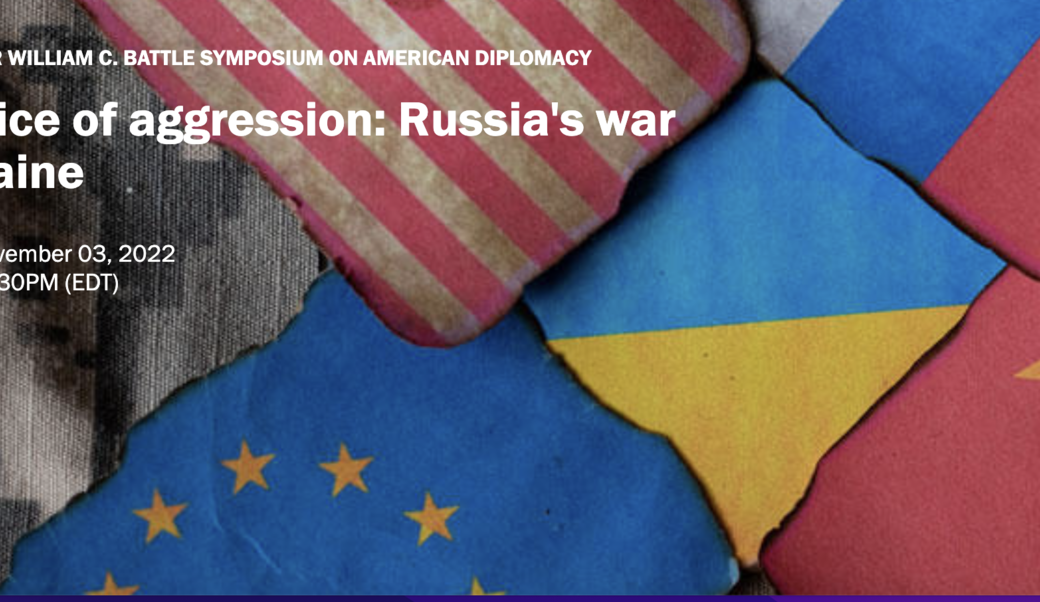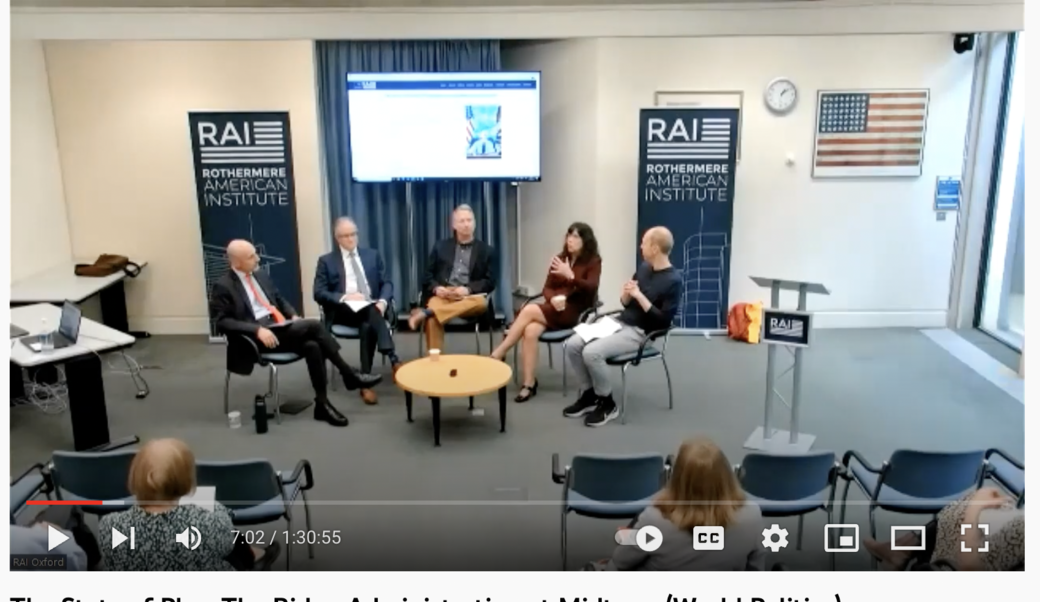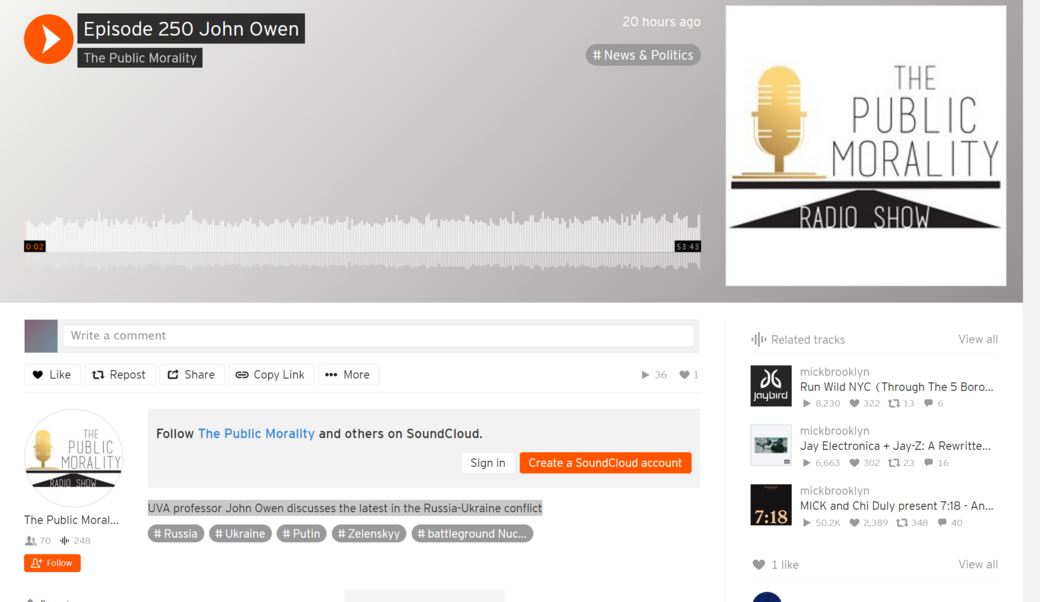Fast Facts
- Recipient of fellowships from the Olin Institute for Strategic Studies at Harvard, the Center for International Security and Cooperation at Stanford, and the Center of International Studies at Princeton
- Member of the editorial board of International Security
- 2015 winner, Humboldt Research Prize (Germany)
- Expertise on war, regime change, religion, democracy and the international order, and international security
Areas Of Expertise
- Foreign Affairs
- American Defense and Security
- War and Terrorism
- Religion
John M. Owen is a Miller Center faculty senior fellow and Ambassador Henry J. Taylor and Mrs. Marion R. Taylor Professor of Politics. His newest book, The Ecology of Nations: American Democracy in a Fragile World Order (Yale University Press, 2023), received the 2025 Grawemeyer Award for World Order from the University of Louisville. He is also the author of Liberal Peace, Liberal War: American Politics and International Security (Cornell University Press, 1997) and The Clash of Ideas in World Politics: Transnational Networks, States, and Regime Change 1510-2010 (Princeton University Press, 2010). He is co-editor of Religion, the Enlightenment, and the New Global Order (Columbia University Press, 2011).
Owen has published work in Foreign Affairs, The New York Times, The Washington Post, International Politics, International Organization, Internationale Politik und Gesellschaft, International Security, International Studies Quarterly, Perspectives on Politics, The National Interest, and several edited volumes. He is the recipient of fellowships from the Olin Institute for Strategic Studies at Harvard, the Center for International Security and Cooperation at Stanford, and the Center of International Studies at Princeton. His research has been funded by the MacArthur, Earhart, and Donchian Foundations. He received a Humboldt Research Prize in 2015. He is a member of the editorial boards of International Security and Security Studies and a faculty fellow at the UVA Institute for Advanced Studies in Culture.
